Letter recognition Phonics Worksheets for Ages 5-8
24 filtered results
-
From - To
Unlock your child's potential with our Letter Recognition Phonics Worksheets for ages 5-8! These interactive and engaging worksheets are designed to enhance your child's reading skills by promoting letter recognition through fun activities. Each worksheet emphasizes phonics fundamentals, allowing young learners to identify letters, practice their sounds, and build essential literacy skills. With colorful illustrations and a variety of exercises, children will enjoy learning while developing confidence in their reading abilities. Perfect for homeschoolers or educators, our resources align with early childhood education standards, making learning both effective and enjoyable. Start your child's reading journey today with our comprehensive worksheets!
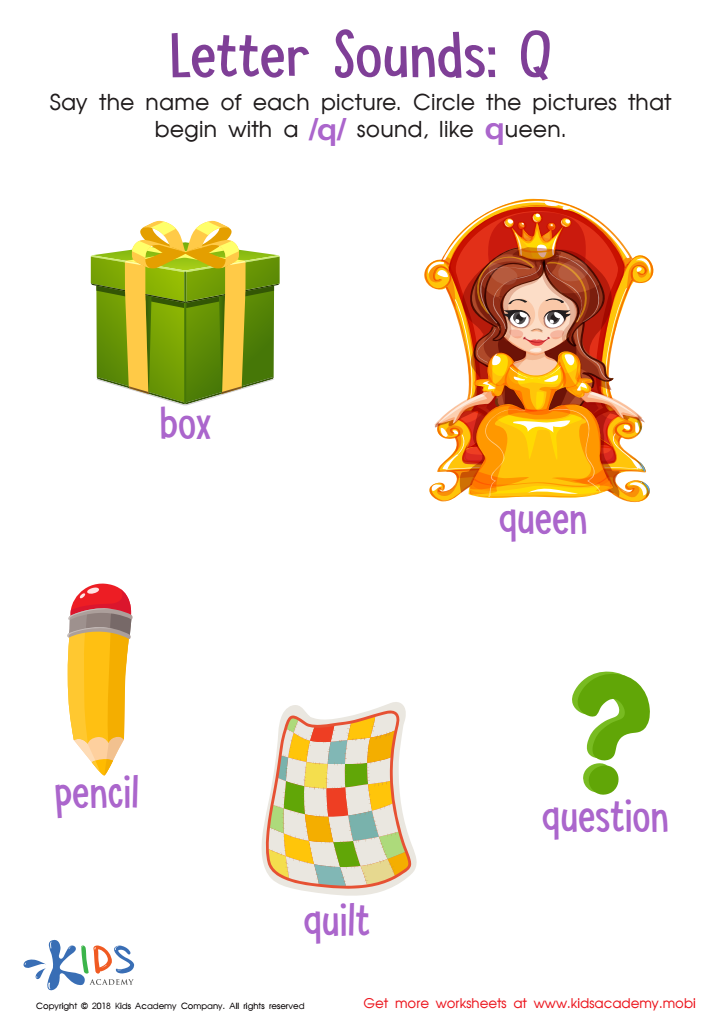

Letter Q Sounds Worksheet
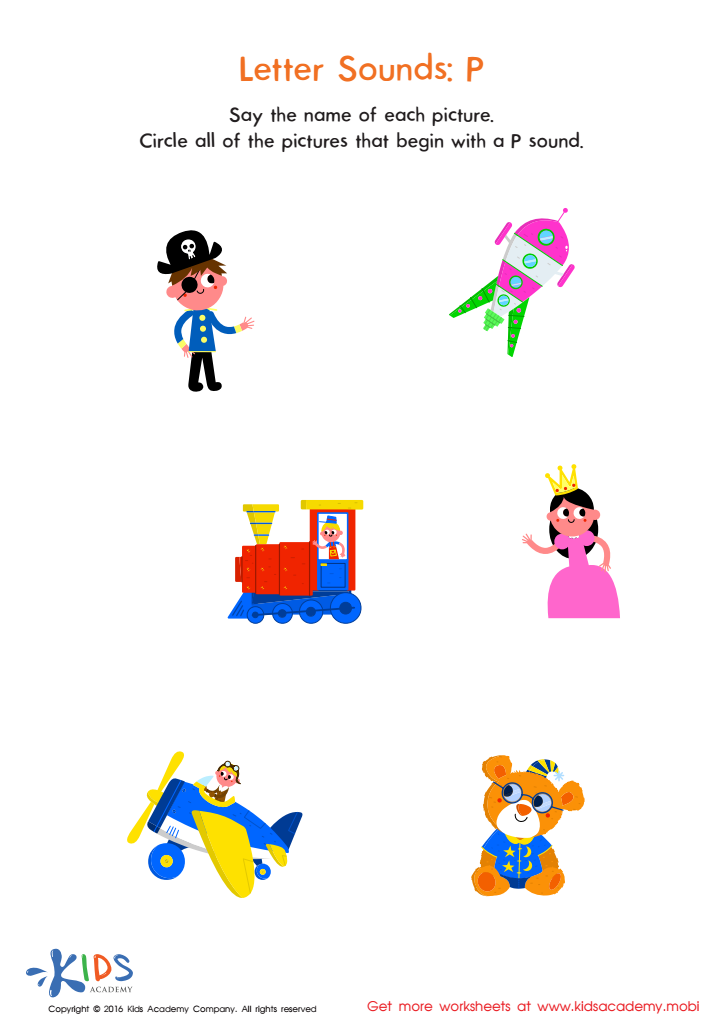

Letter P Sound Worksheet
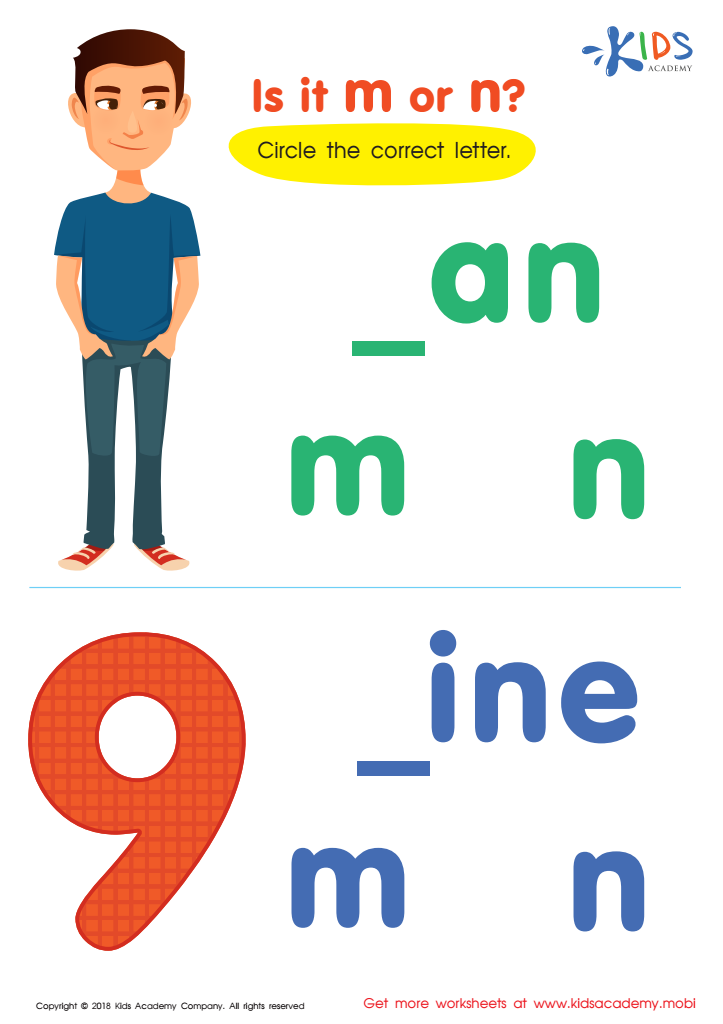

Is It m or n? Worksheet
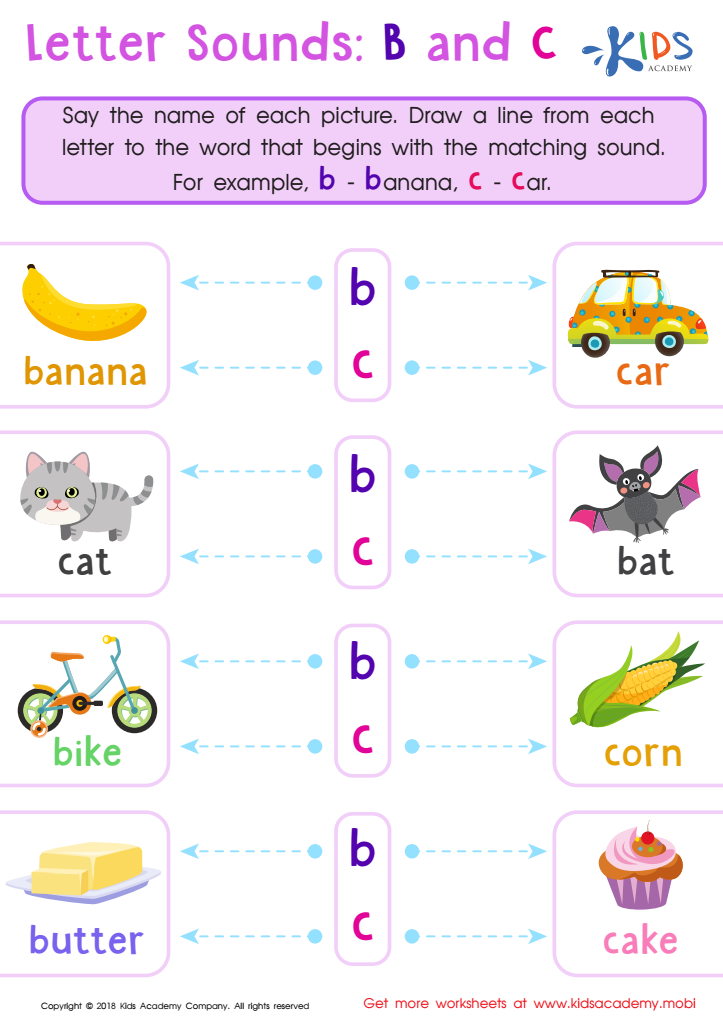

Letter B and C Sounds Worksheet
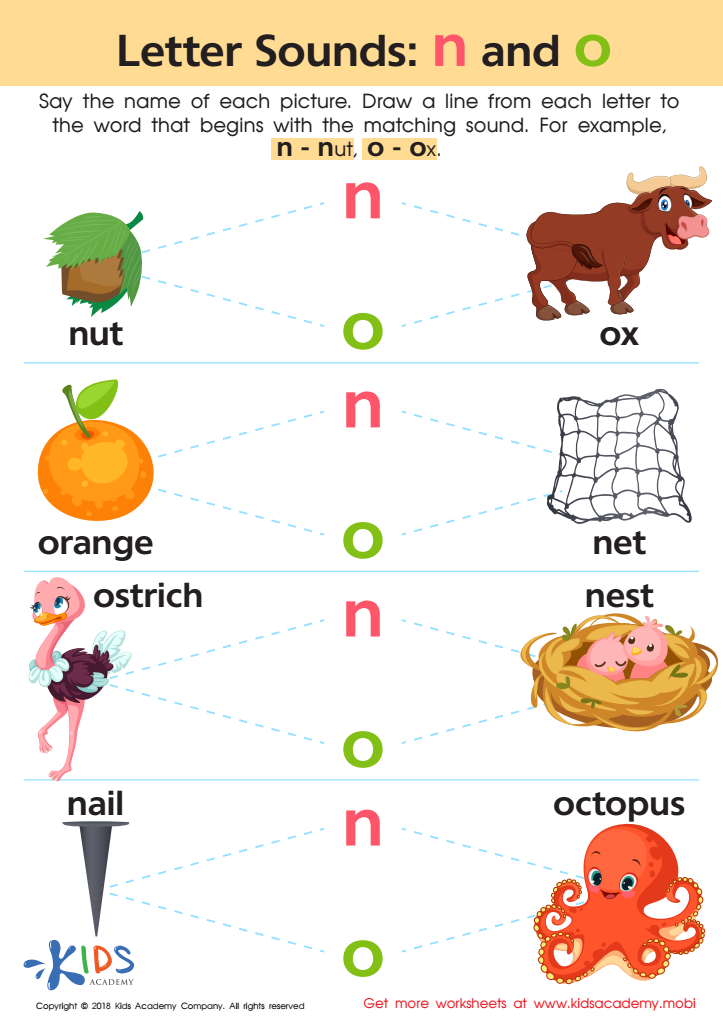

Letter N and O Sounds Worksheet
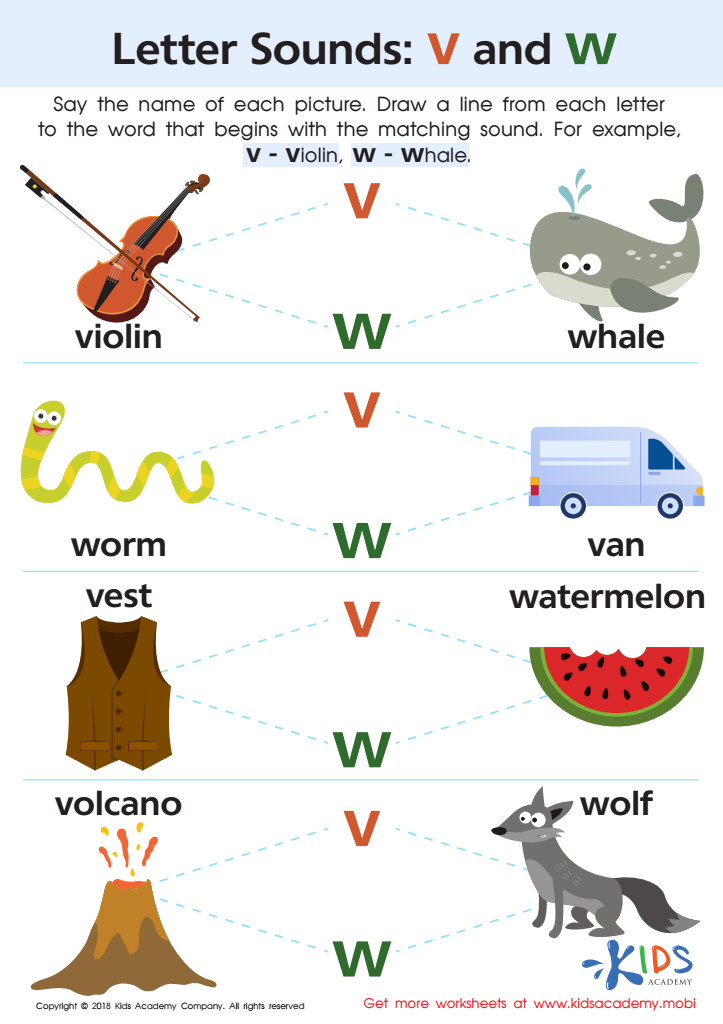

Letter V and W Sounds Worksheet
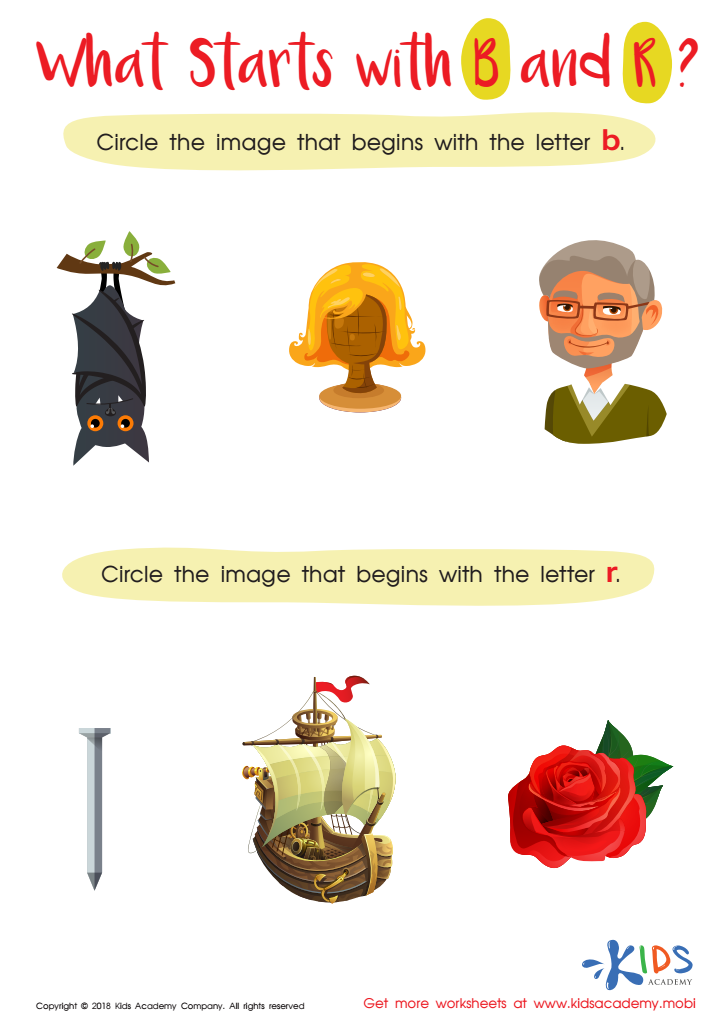

What Starts with B and R? Worksheet
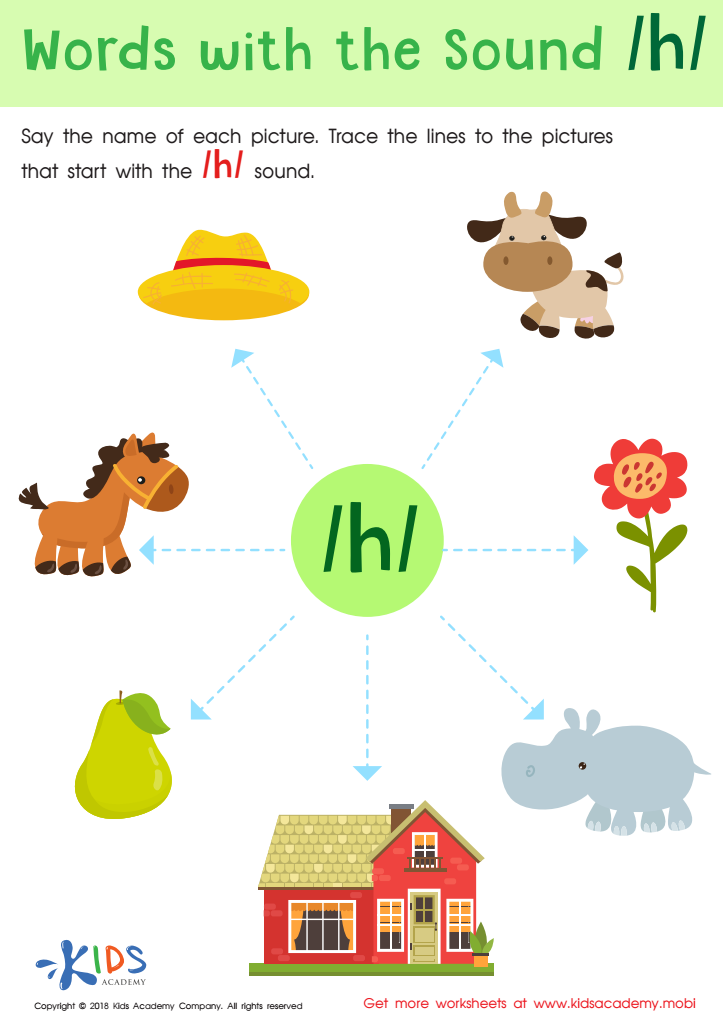

Words with sound h Reading Worksheet
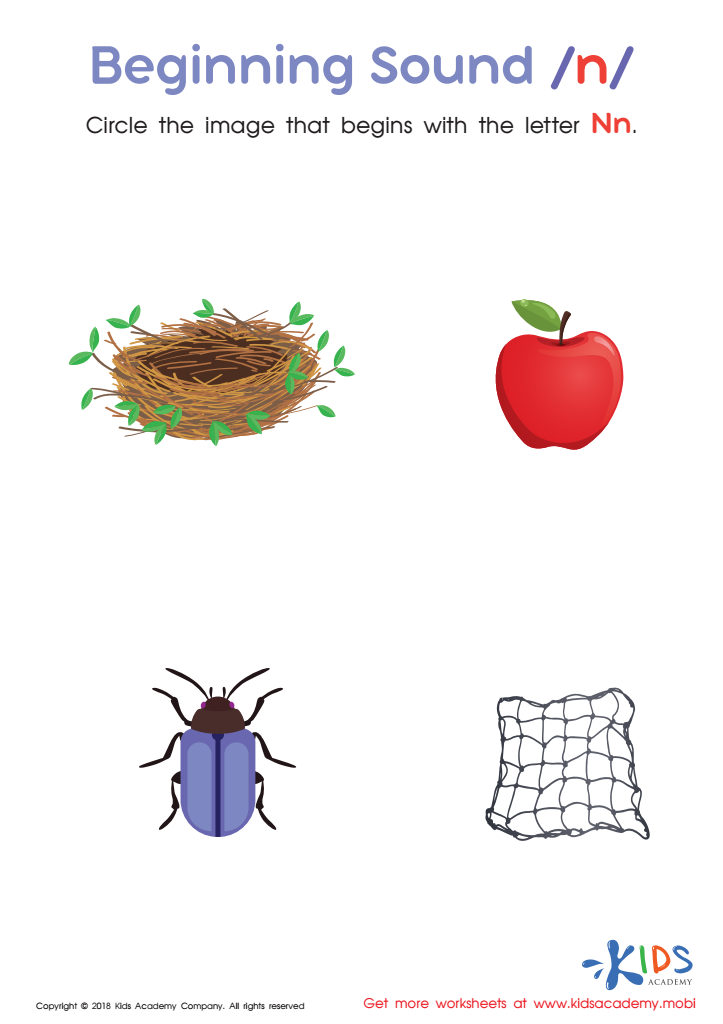

Beginning Sound «n» Worksheet
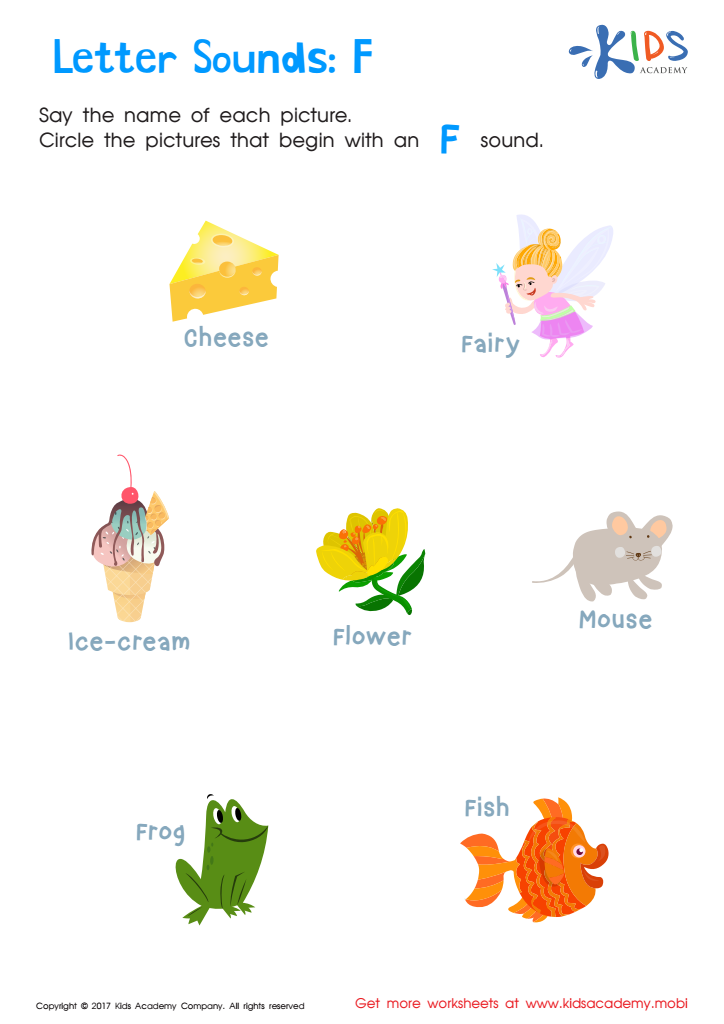

Letter F Sounds Worksheet
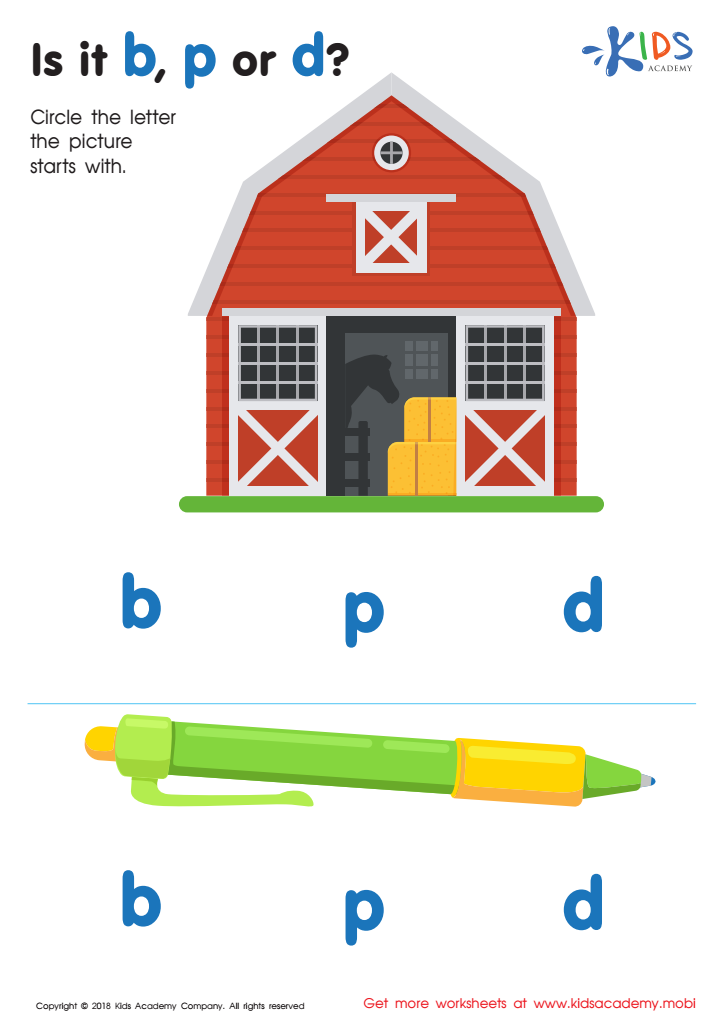

Is it b, p or d? Worksheet
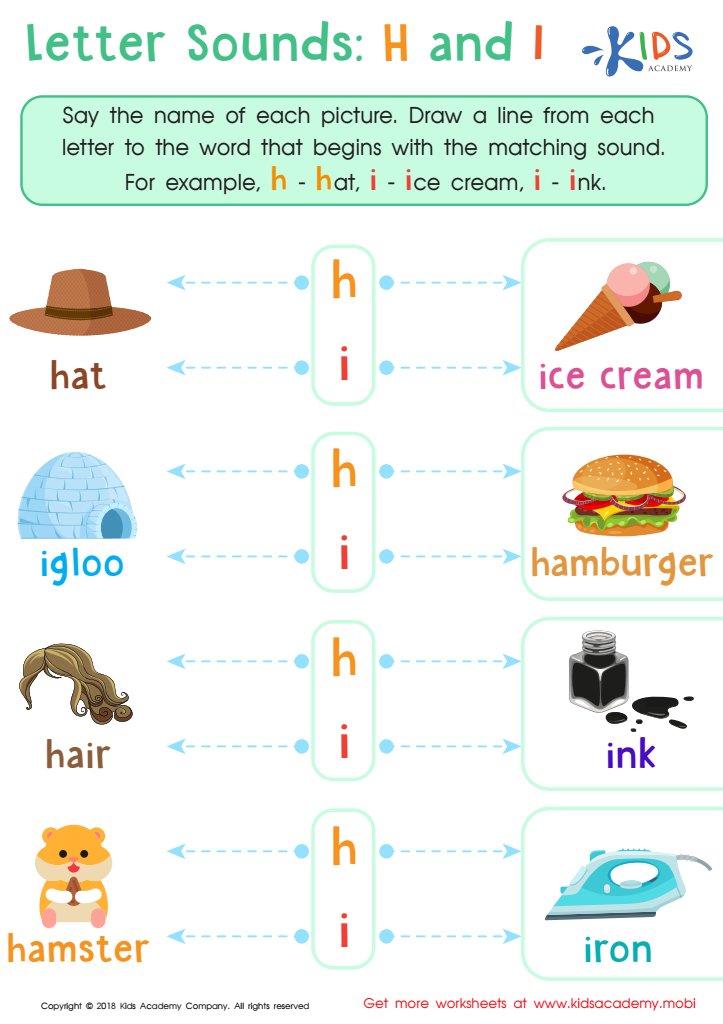

Letter H and I Sounds Worksheet


Long and Short U Worksheet
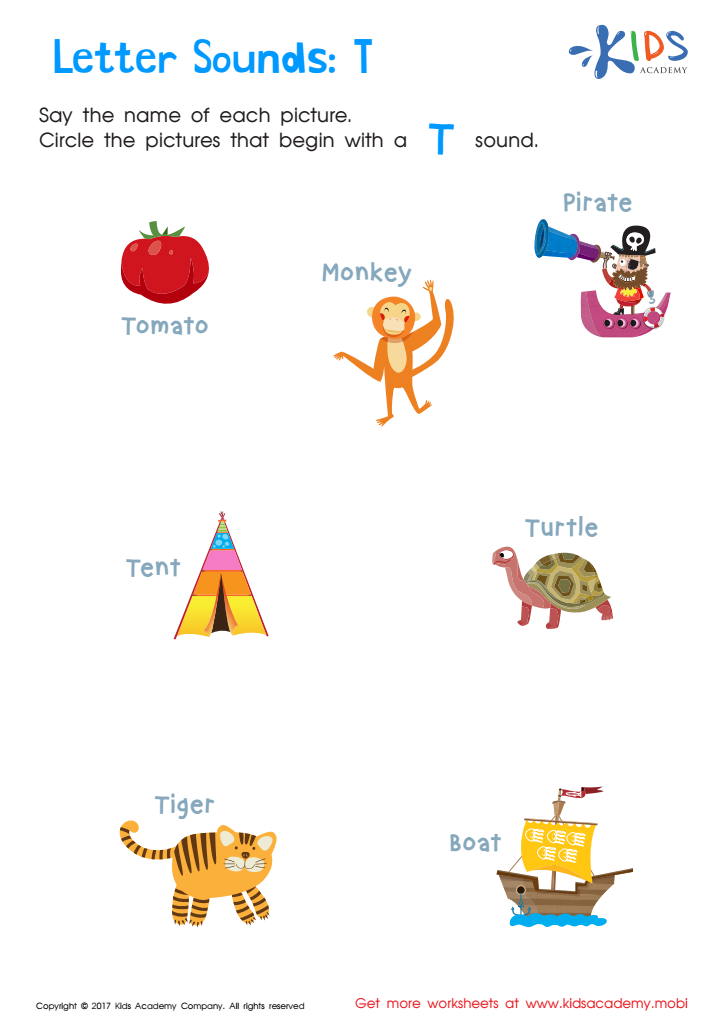

Letter T Sounds Worksheet
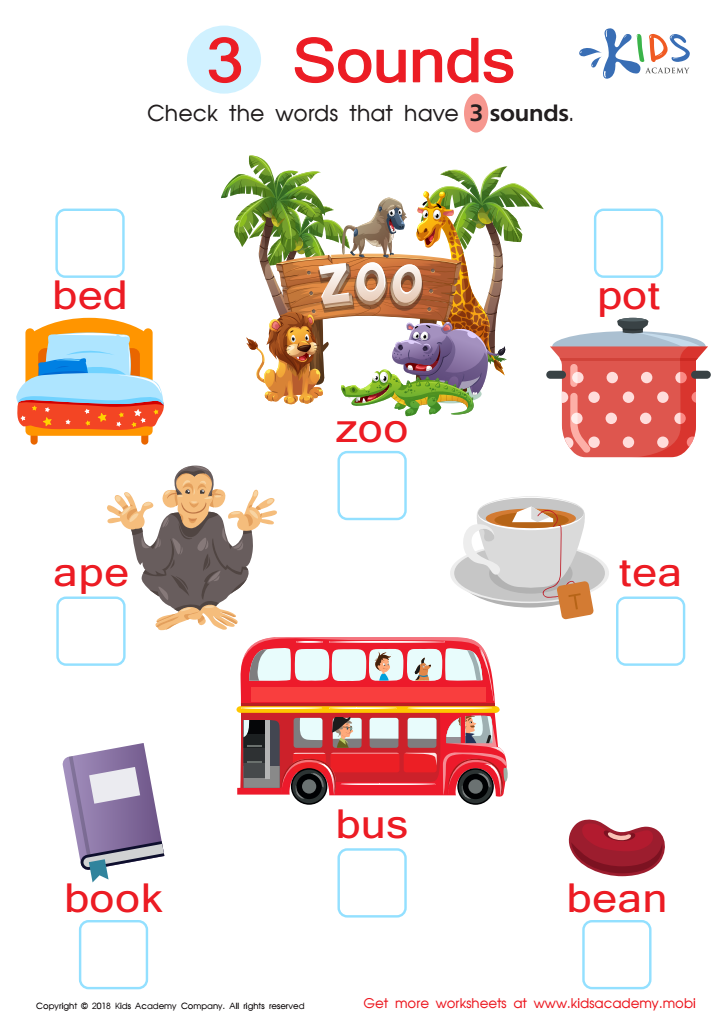

3 Sounds Worksheet
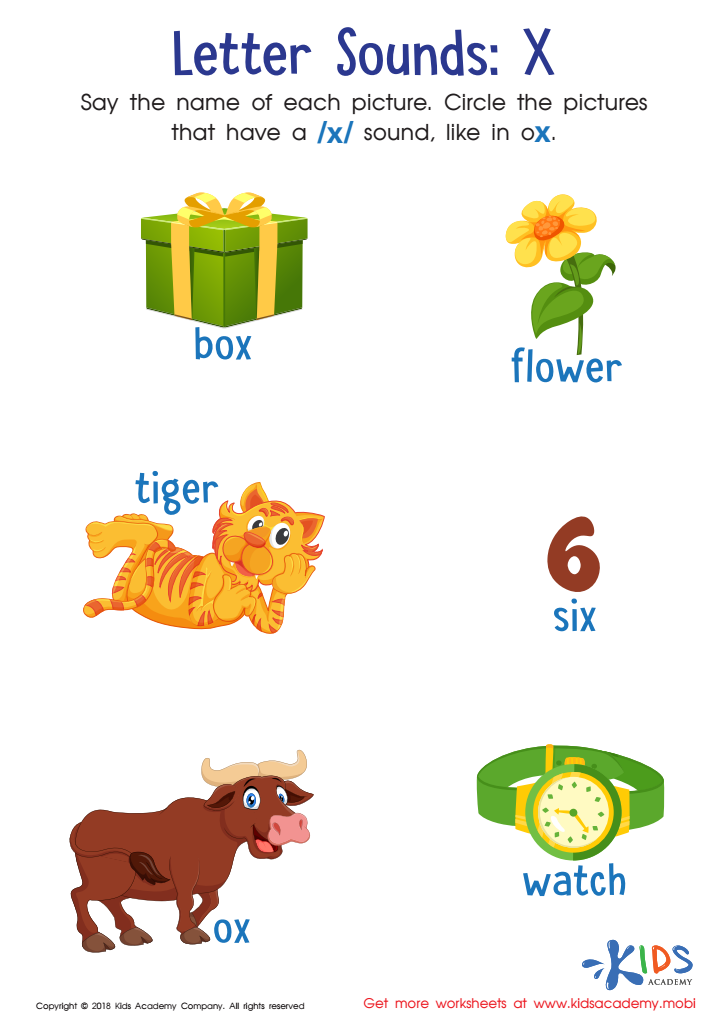

Letter X Sounds Worksheet
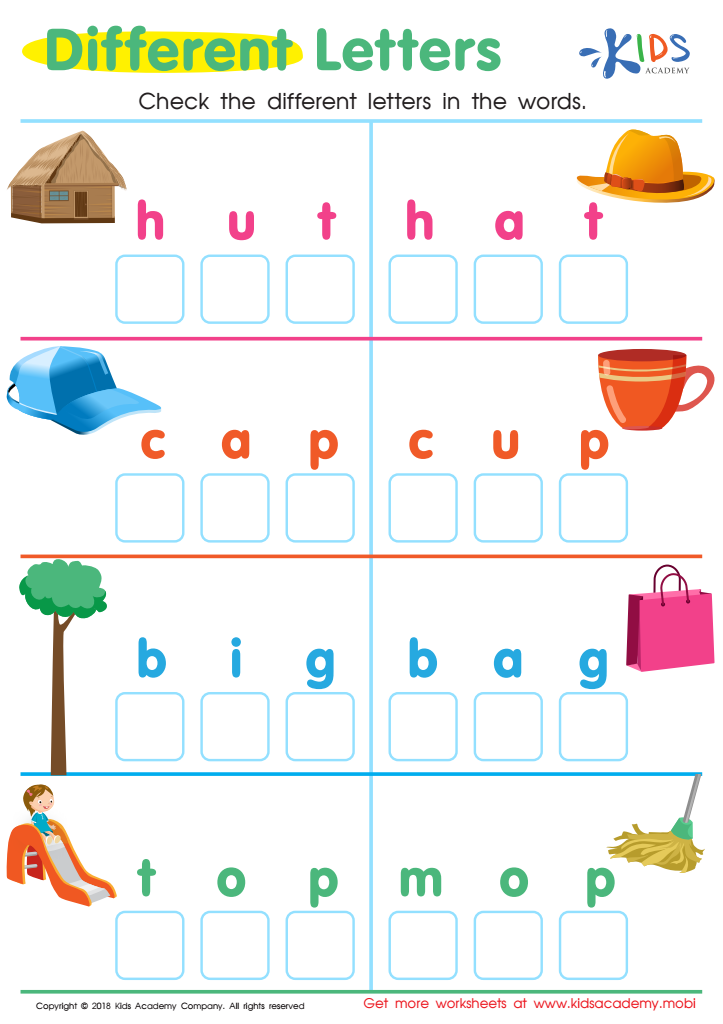

Different Letters Reading Worksheet
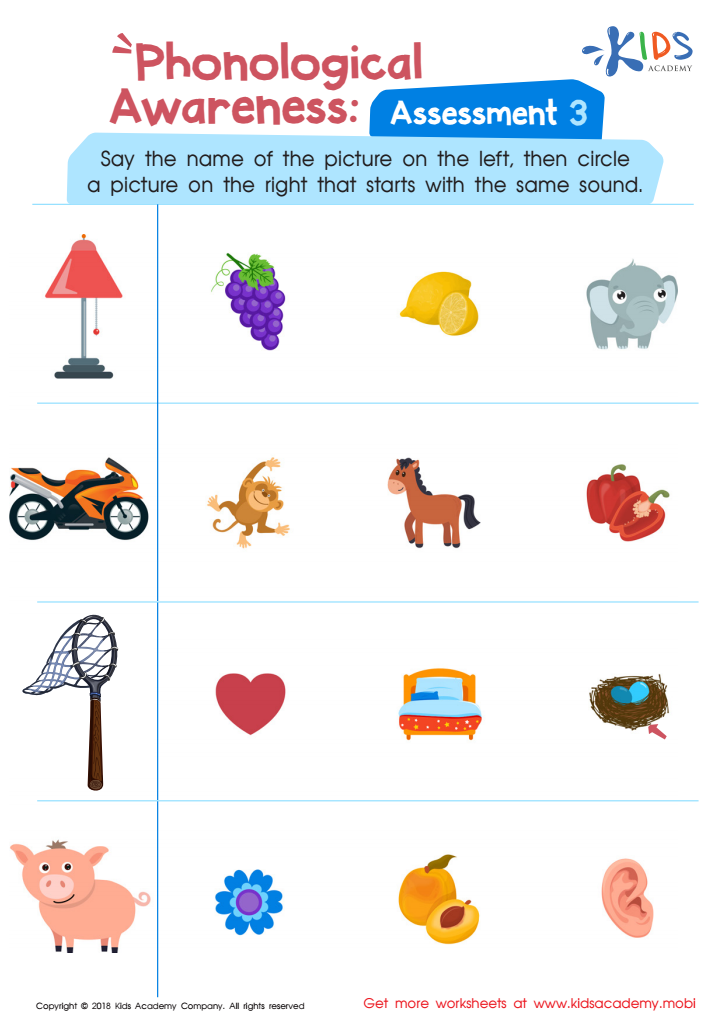

Phonological Awareness: Assessment 3 Worksheet
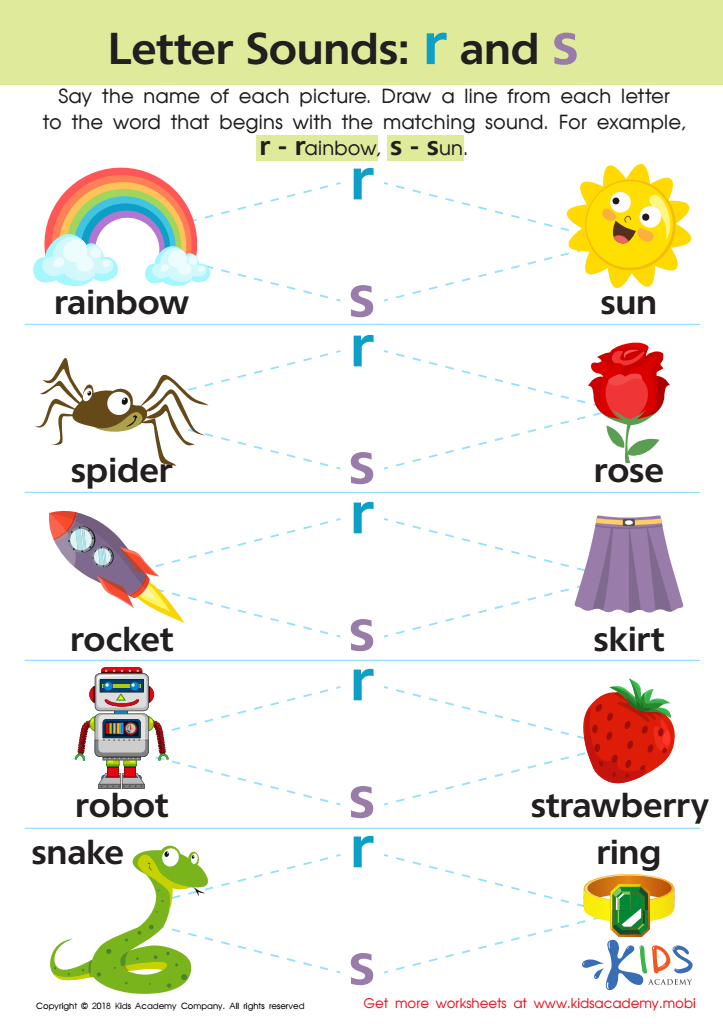

Letter R and S Sounds Worksheet
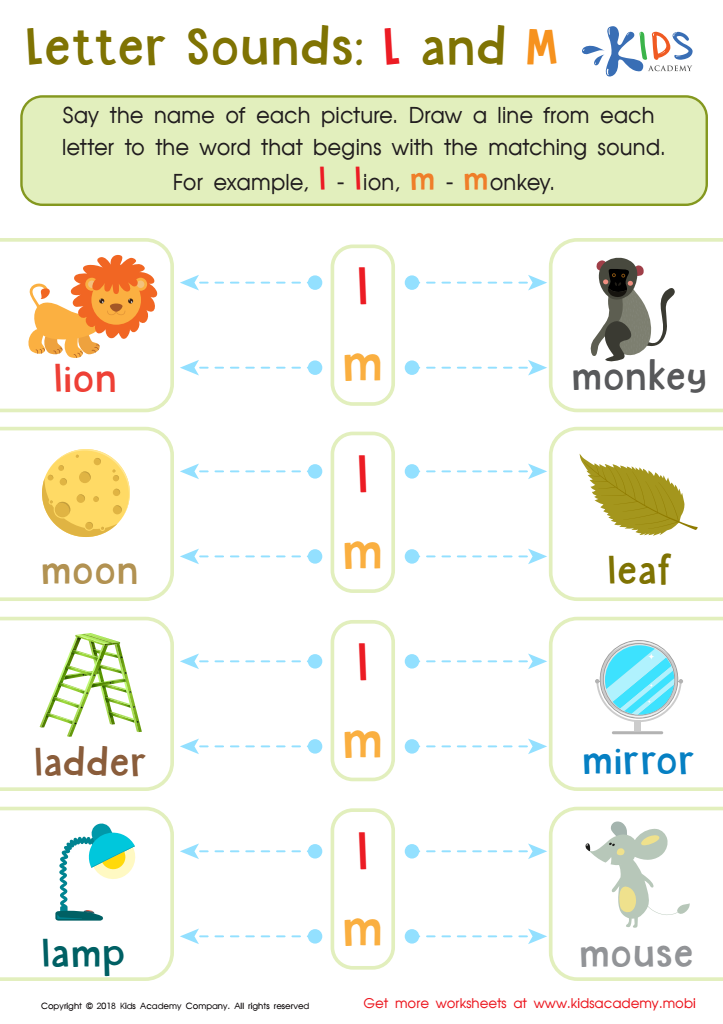

Letter l and M Sounds Worksheet


Long and Short E Worksheet


Phonological Awareness: Assessment 1 Worksheet
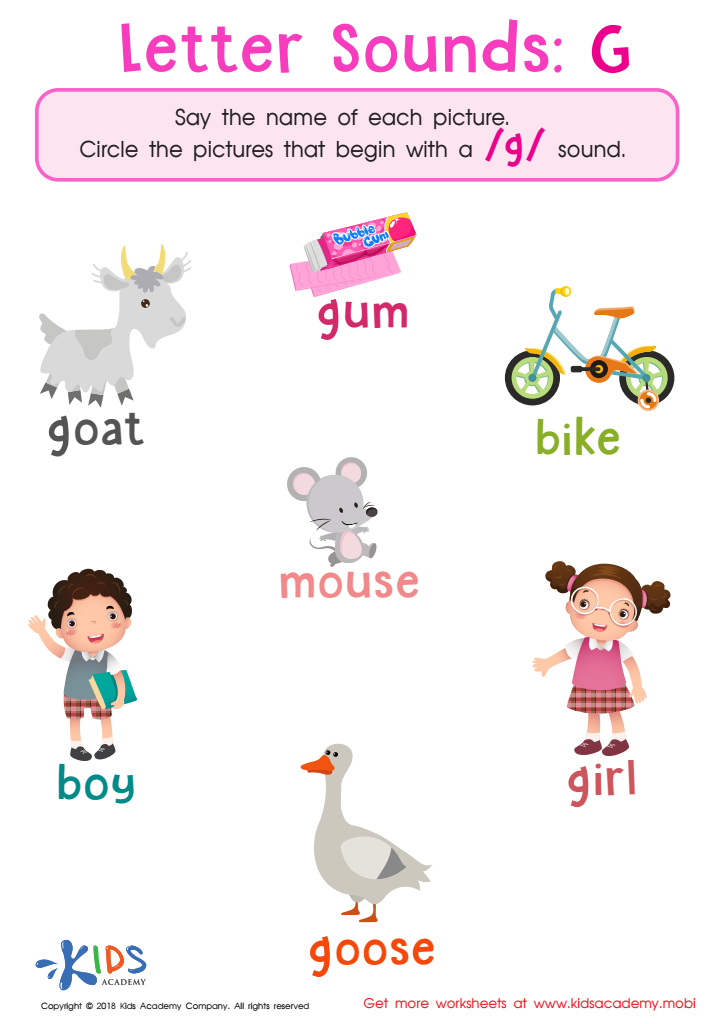

Letter G Sounds Worksheet
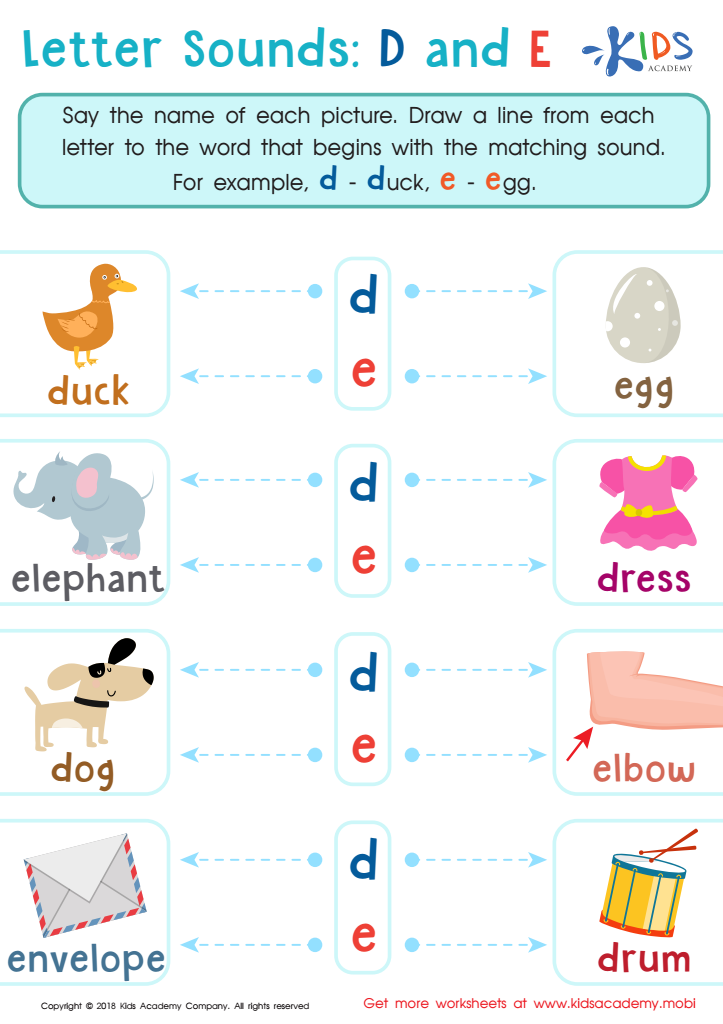

Letter D and E Sounds Worksheet
Letter recognition and phonics are foundational skills for children aged 5-8, crucial for their reading and writing development. Understanding letters and their corresponding sounds allows children to decode words, which is essential for reading fluency and comprehension. When parents and teachers emphasize letter recognition and phonics, they equip children with the tools to tackle written language confidently.
Early literacy experiences significantly impact a child’s academic trajectory. Mastering letter recognition helps children differentiate between similar sounds and letters, laying the groundwork for spelling and advanced reading skills. Moreover, phonics instruction aids in building vocabulary, enhancing writing abilities, and nurturing a love for reading.
Additionally, fostering these skills supports cognitive development, as children learn to make connections between sounds and symbols, promoting critical thinking. Parents who engage in this process, whether through reading together or playing alphabet games, reinforce the learning that occurs in the classroom.
Ultimately, prioritizing letter recognition and phonics not only aids in literacy development but also boosts children’s self-esteem and enthusiasm for learning. By working together, parents and teachers can create a nurtured environment that cultivates proficient readers and communicators, setting the stage for lifelong learning.

 Assign to My Students
Assign to My Students





















